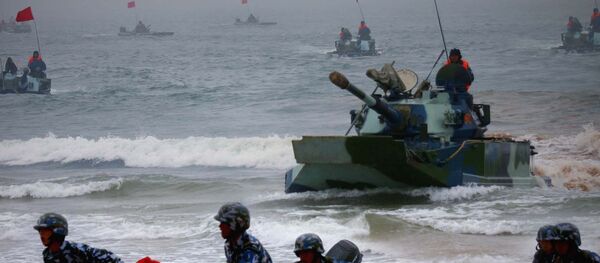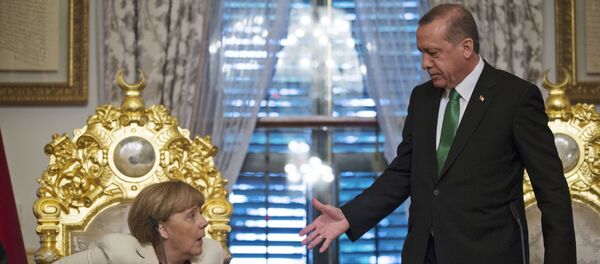Turkish rebels intensified their assault on US-backed Kurdish forces in Northern Syria on Saturday as Ankara ratcheted up its cross-border offensive by launching airstrikes against both Kurdish YPG forces and Daesh (ISIS) jihadists.
Ankara’s involvement in the Syrian battlefield comes at a time when they are battling a Kurdish insurgency domestically, known as the Kurdistan Worker’s Party (PKK), which the Erdogan regime considers to be directly aligned with the YPG despite statements from the US State Department to the contrary.
Turkey is increasingly concerned about the gains made by the YPG with the aid of US forces in the fight against Daesh given the potential for Kurdish forces to control a continuous stretch of Syrian territory along the Turkish-Syrian border which Ankara believes would only embolden Kurdish militants in Turkey.
The onslaught against US-backed Kurds in Turkey follows on the footsteps of US Vice President Joe Biden’s visit to Ankara in an attempt at reaffirm the longstanding relation between the two NATO allies that has frayed in recent months with the Erdogan regime directly blaming the United States for involvement in the failed coup of July 15 in addition to a fierce diplomatic row over the State Department’s refusal to institute extradition proceedings against coup mastermind Fethullah Gulen.
Complicating the strategy for US-led forces in the fight against Daesh, Turkey has also suggested that they may soon provide Russian aerospace forces access to NATO’s Incirlik Air Base, an American built facility where the United States currently stores 50 to 90 tactical B-61 nuclear weapons.
The Syrian civil war which has blended in recent years with the fight against Daesh militants now has a number of conflicting key players making it hard to keep track of who is actually fighting who.
The US presently backs Kurdish forces, who their NATO ally Turkey has placed in its cross hairs, and the so-called "moderate" rebels who have aligned themselves with former al-Qaeda affiliate al Nusra Front who the United States and Russia continue to engage in bombing campaigns against.
Meanwhile, Russia has sought to support the Assad regime seeing stability of the government as a necessary predicate in order to prevent Syria from descending into a failed state status controlled by jihadi terrorists while also engaging in conflict against al-Nusra militants who are embedded with US backed rebels under the umbrella of the Army of Conquest.
Finally, Turkey has undertaken the battle against US-backed YPG joined in part by so-called moderate rebels with the only unifying tie between all parties – Turkey, the United States, the "moderate" rebels, Kurdish forces, the Assad government, and Russia – is the agreement that Daesh jihadists must be stopped.
The US-backed Syrian Democratic Forces, of which the YPG are a participating group, called Turkey’s airstrikes on the village of al-Amarna "a dangerous escalation." The strike was reported to have caused a number of civilian casualties with two F-16 jets also reportedly striking a compound controlled by YPG forces in addition to six Daesh targets.





